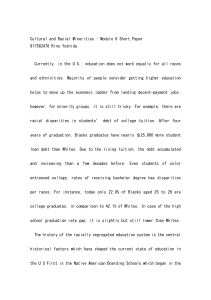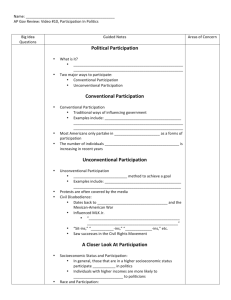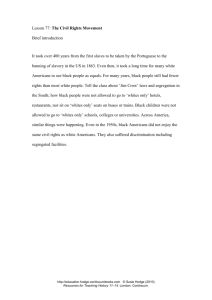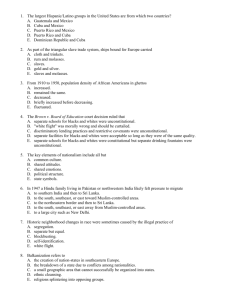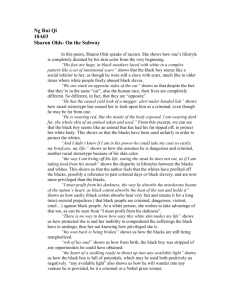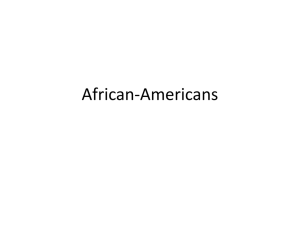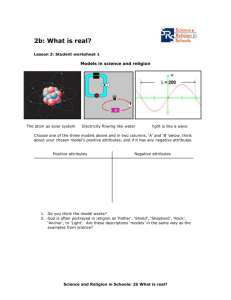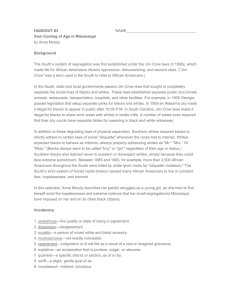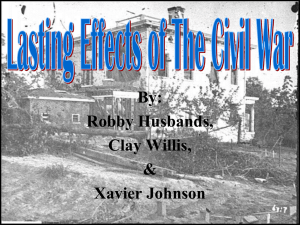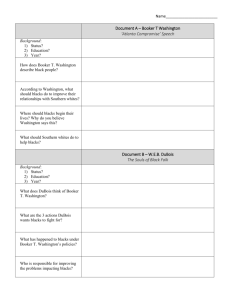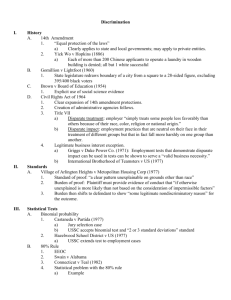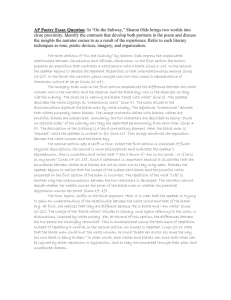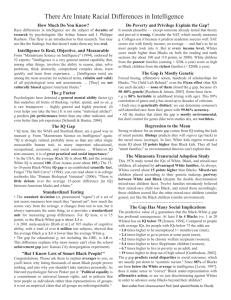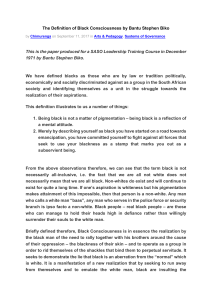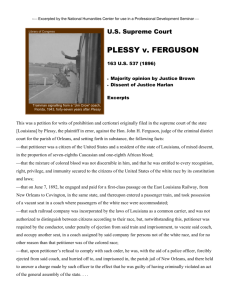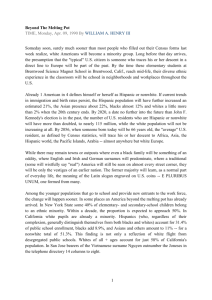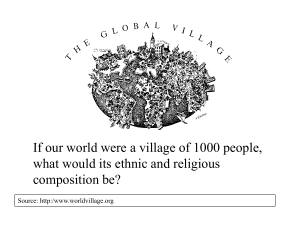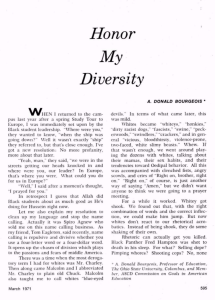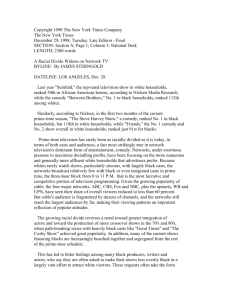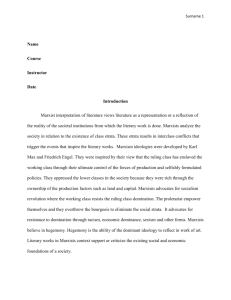History - Apartheid Laws
advertisement
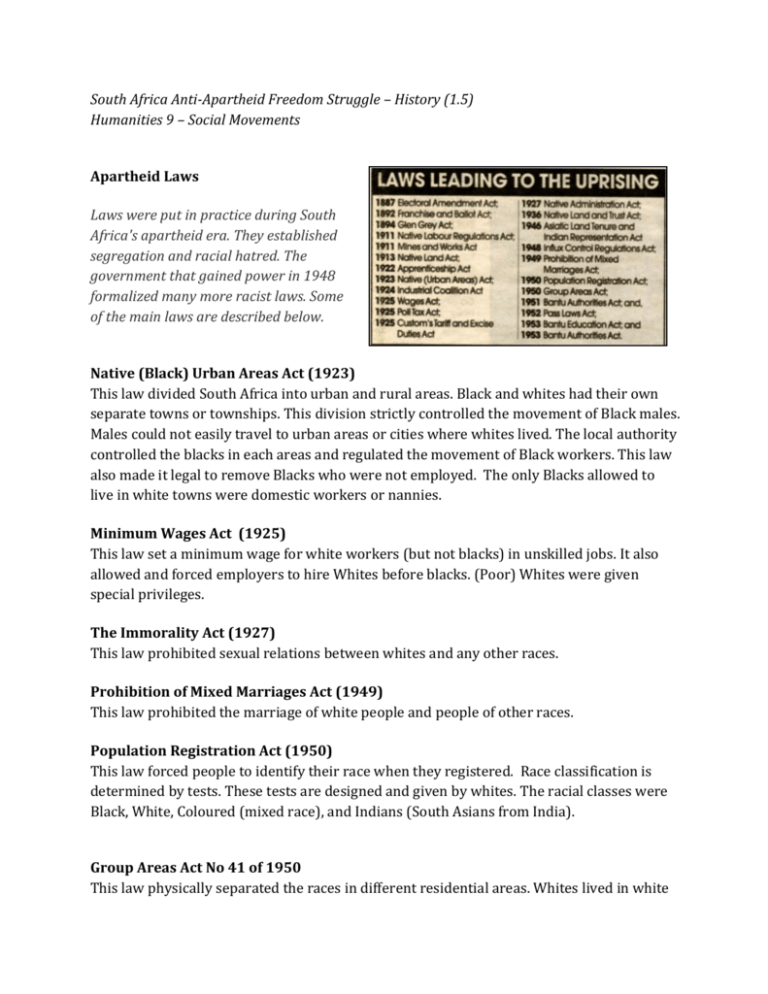
South Africa Anti-Apartheid Freedom Struggle – History (1.5) Humanities 9 – Social Movements Apartheid Laws Laws were put in practice during South Africa's apartheid era. They established segregation and racial hatred. The government that gained power in 1948 formalized many more racist laws. Some of the main laws are described below. Native (Black) Urban Areas Act (1923) This law divided South Africa into urban and rural areas. Black and whites had their own separate towns or townships. This division strictly controlled the movement of Black males. Males could not easily travel to urban areas or cities where whites lived. The local authority controlled the blacks in each areas and regulated the movement of Black workers. This law also made it legal to remove Blacks who were not employed. The only Blacks allowed to live in white towns were domestic workers or nannies. Minimum Wages Act (1925) This law set a minimum wage for white workers (but not blacks) in unskilled jobs. It also allowed and forced employers to hire Whites before blacks. (Poor) Whites were given special privileges. The Immorality Act (1927) This law prohibited sexual relations between whites and any other races. Prohibition of Mixed Marriages Act (1949) This law prohibited the marriage of white people and people of other races. Population Registration Act (1950) This law forced people to identify their race when they registered. Race classification is determined by tests. These tests are designed and given by whites. The racial classes were Black, White, Coloured (mixed race), and Indians (South Asians from India). Group Areas Act No 41 of 1950 This law physically separated the races in different residential areas. Whites lived in white areas. Black people lived in black areas. Each group must live only in its own area. This law forced people who lived in the “wrong” area to move or be removed. For example “Coloured” people living in District Six in Cape Town were forced out. Additionally, no Black may own property in a white area. No black person may even live on white land without special permission. Internal Security Act (1950) This law prohibited any act of sabotage against private property or the government in any act, writing, or speech. It was illegal to “embarrasses the administration of the affairs of state” or cause financial loss to any person or to the government. (For example, it would have been a crime to boycott or to encourage U.S. corporations not to invest in South Africa). People charged under this law were guilty until proven innocent. Maximum penalty: death. Minimum penalty: five years in prison. This act also allowed a person to be arrested and imprisoned without trial. It sets no time limits on detention. An individual may be “detained” for life without trial. No judge may stop anyone from being detained. The government also did not have to inform a detainee’s family about the detention. Separate Representation of Voters Act (1951) Coloureds, or people of mixed races, were not allowed to vote. Bantu Building Workers Act (1951) This law allowed black people to be trained as artisans in the building trade. Before 1951 this was a job reserved for whites only. Blacks could do this work, but they could only work in area designated for blacks. This law also made it a crime for a black person to have a skilled job in urban areas. Pass Laws (1952) Every black South African persons age 16 and older must apply for identification. The pass book contained an identity number, personal details, employment status, fingerprints, etc. People had to carry the reference book at all times. Any African without the pass book could be arrest—even if the book was left at home. (On the average, one person was arrested every two minutes under this law). Departure from the Union Regulation Act (1955) A government official could take or refuse to issue a passport at any time and for any reason. Riotous Assemblies Act (1956) Judges could ban any or all private or public gatherings of two or more people if it is suspected that “the public peace may be endangered.” (Under this act, prayer services and silent protests were banned. It was also used to outlaw all outdoor meetings and marches since 1976, except sports events or if a special permit is obtained.) Defense Act (1957) No person could publish (in a newspaper, magazine, book, or paper) or say anything about the government or military that would “embarrass the government in its foreign relations or to alarm or depress members of the public” Prisons Act (1959) This law forbid people from publishing any information about prisons. (Because it is impossible legally to check any information about prisons, this law serves to prohibit any public discussion of prisons.) Unlawful Organization Act (1960) The law gives the government the right to ban any organization—no formal notice needed to be given nor any hearing held. Once an organization was banned, all of its property had to be given to the government. This law banned the African National Congress and the Pan African Congress, which were two resistance organizations. Sabotage Act (1962) This outlawed these, among other things: engaging in acts promoting “disorder”, “furthering racial hostilities”, or embarrassing the administration of the affairs of state. People charged were guilty until proven innocent. Maximum penalty: death. Bantu Laws Amendment Act (1964) This law allowed the government to remove or imprison Africans from in urban areas if they were unemployed. Unless Africans were born in an urban area or specifically given permission, black Africans must live only in Black neighborhoods. Terrorism Act (1967) This law allowed someone suspected of being involved in a terrorist act, or disrupting law and order to be detained for 60 days without a trail
